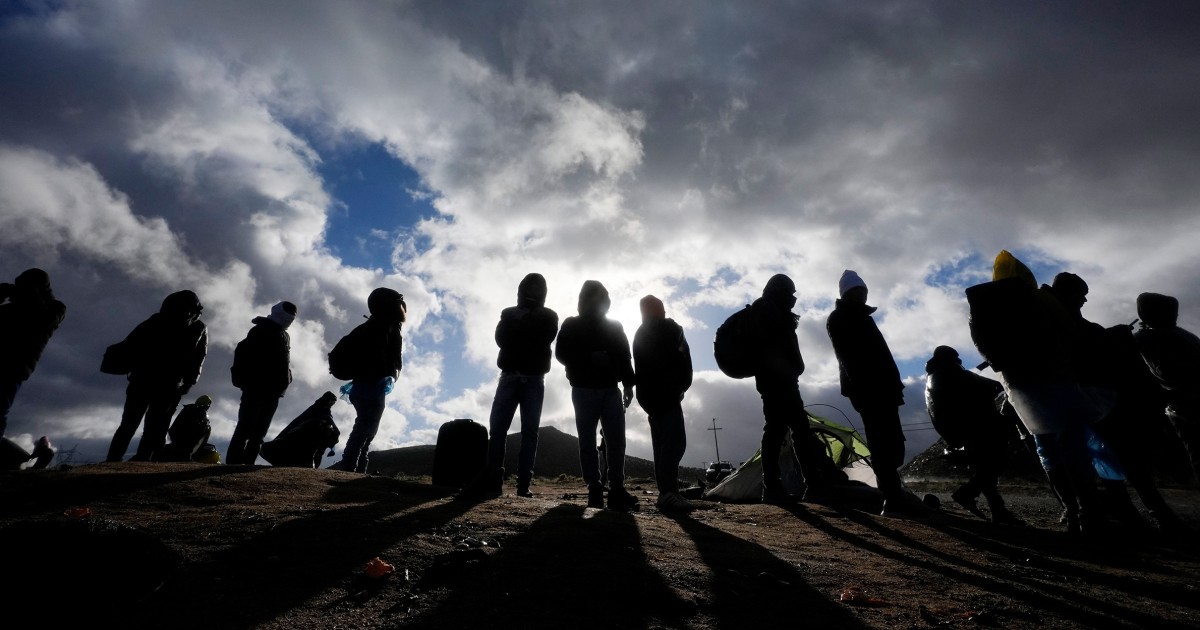📢
Axios Latino is the newsletter that summarizes the key news for Latino communities in the hemisphere every Tuesday and Thursday.
You can subscribe by clicking
here
.
1. The topic to be highlighted: Latinidad, racial?
A new proposal to change how the Census and other federal agencies ask about Latino identity is drawing mixed responses, including concerns that the multiraciality of Hispanics is no longer captured in data.
Why it matters
: The information collected on those forms is key to determining issues like political representation and the allocation of billions of dollars in federal funds.
Latinos were massively undercounted in the 2020 Census, which experts attribute to little mobilization to encourage Hispanics to respond during the pandemic, as well as fear and confusion about former President Donald Trump's plans (later scrapped) to ask questions. about immigration status.
Details
: Currently, federal forms first ask if someone is Hispanic or Latino, followed by their race.
What the new question would look like Taken from Federal Register
With the proposal made last week by an interagency group working with the Office of Management and Budget (which oversees federal agencies), the two questions would be combined into one: "What is your race or ethnicity?"
Below the "Hispanic/Latino" category there will be fields to specify the country of origin.
Questionnaire respondents could also theoretically select more than one category, such as Hispanic and also "black or African-American."
In their own words
: The proposal suggests that the government recognizes that it is not counting people effectively and accurately, says sociologist Laura E. Gómez, a UCLA professor and author of
Inventing Latinos
.
"It does not happen to all Latinos, but it does to a significant part: they do not see themselves in the racial questions as they are currently posed," he says, pointing out that in 2020 the number of Latinos who identified themselves as "grew 42%." other" race.
Gómez explains that Latinos in the US share Latin American and Caribbean ancestry marked by miscegenation: roots that are both indigenous, European, African, and sometimes Moorish/Moorish.
But many responding to the questionnaires may feel that marking "black" or "Native American" does not fully reflect them and so they use "other."
Yes, but
: The change could end up hiding the broad diversity among Latinos, making it difficult to measure how subgroup experiences differ, says Nancy Lopez, director of the Institute for the Study of Race and Social Justice at the University of New Mexico.
He gives the example that if an Afro-Latino marks "Hispanic/Latino" on the new form but not "Black/Afro-American", perhaps thinking that he can only answer one thing because it is the same question, that could distort the data.
It would obfuscate the fact that, for example, black Dominicans in some places have less access to housing than white Hispanics.
"We would never use a question that combines education and income, or gender identity and sex, as if they were one thing," says López, criticizing that he wants to do the same for race and ethnicity.
"If we make this adjustment, the resulting data will not faithfully show different experiences in housing, health, voting rights and other consequences."
Illustration: Shoshana Gordon/Axios
López says
that if the change is implemented, despite those concerns, the government should at least experiment with also having another race box to avoid such omissions.
She suggests including mestizo (with subcategories such as light-skinned mestizo, black-skinned mestizo, etc.), copying the way the Brazilian census uses the term "pardo" for someone of mixed race.
According to the expert, testing that category could better show how a person is treated or how they are identified by others based on details such as their skin color, thus capturing possible disparities in a more representative way.
"Otherwise we ignore the reality that race often works as a system that stratifies us according to how we see ourselves," says the sociologist.
Gómez, from UCLA, comments that if the change is approved, it will be very necessary for the authorities to carry out awareness campaigns so that anyone who fills out a questionnaire knows that they can choose both "Latino" and, for example, "black" so as not to make invisible the multiracial population.
What's Next
: The Federal Register and the Office of Management and Budget have set a 75-day period (through early April) for public input and comment on the proposal before a final decision is made.
We want to hear your opinion: what do you think of the proposal?
Do you think it will be easier for you to fill out forms?
us
with comments.
2. Latinos in Hollywood charge against HBO
The merger of Warner Brothers with Discovery has brought several programming cancellations on the HBO channel and its
streaming
platform HBO Max, as well as the complete withdrawal of series that can no longer be seen anywhere.
Among them,
Gordita Chronicles
, whose creator criticized the company this week, accusing it of preventing diversity behind and in front of the cameras.
In her own words
: "Studio executives said the cancellation was because HBO was 'rebranding,' as if that meant shows about families, say Latinas, aren't important or 'branded,'" said Claudia Forestieri , the creator and executive producer of
Gordita
, as reported by Deadline.
"The merger has made it very clear that the consolidation of the film and television industry not only harms the diversity and inclusion of programming, but also contributes to making US Latinos invisible," said Forestieri, whose show comic followed a Dominican family that moves to Miami.
Illustration: Aïda Amer/Axios
Several voices joined
Forestieri, including that of Moisés Zamora, a Mexican-American who was creating
Whistleblower,
inspired by the Vanessa Guillén case, for HBO Max.
Zamora told Deadline that executives had praised the series when it was in development but it was canceled after the merger.
"The speculation surrounding these cancellations is that the new company says it wants to focus on what it considers to be 'average American' content. As if Black, Asian and Latino people aren't average Americans, when of course they are," Zamora said.
News Push
: The complaints by Zamora and Forestieri add to those by WGA West, the West Coast branch of the television and motion picture writers union.
The union accused Warner Bros.-Discovery of falsely promising the merger would open the door to more content, mostly from minority creators in the industry, only to cancel that content.
A Warner Bros. – Discovery spokesperson responded in a statement that the company was "committed to facilitating greater inclusion of underrepresented groups both in front of and behind the camera."
Before the merger, in December 2021, Rep. Joaquin Castro (D-Texas) and other lawmakers asked the Justice Department to review the potential impact on entertainment diversity before allowing the companies to consolidate.
The merger still took place.
3. Mariachi stars on the rise
The documentary about a mariachi group at an American high school,
Going Varsity in Mariachi,
premiered this month to acclaim at the 2023 Sundance Film Festival.
More Details
:
Going Varsity
follows Edinburg North High School's Mariachi Oro group in Texas as its 20 members compete to win a state championship.
The documentary was directed by Mexican-American filmmakers Sam Osborn and Alejandra Vásquez, who had already made a mini-documentary about Mariachi Oro in 2019.
Context
: The Collegiate Interscholastic League, which oversees nearly all school sports competitions in Texas, held the first annual statewide mariachi contest in 2019.
That motivated more schools in the state to launch mariachi music programs.
Watch:
Following
Going Varsity
's premiere at Sundance, production house Fremantle announced last week that it is developing a television series inspired by the theme of competitive mariachi bands in the US.
4. Summary of key news in Latin America and the Caribbean
1. The National Assembly of Venezuela
approved last week in its first discussion a law that, according to UN activists and investigators, will criminalize NGOs in the country.
Members of the Chavismo-controlled Assembly say that many NGOs "operate for absolutely political purposes" and allegedly seek to destabilize the country.
Although international groups warn that the law will hinder key work on food or education done by civil society.
Peruvian protester dies from blow to the head during civil protests
Jan 30, 202300:36
2. The Peruvian Congress debates this Tuesday
whether to advance the general elections from 2026 to this year after the massive protests.
Some 60 people have died in protests demanding immediate elections following the vacancy of former President Pedro Castillo.
Congress has already refused to advance the vote on two other occasions.
5. 🌱Replant what was lost
A 25-year-old Salvadoran biologist has set out to reforest the nation, starting with a hill affected by forest fires and illegal logging.
Planet Earth: The Salvadoran woman who wants to rescue an important hill on her land
Jan 17, 202301:38
Details
: Gabriela Gavarrete is part of Suma un Bosque, a project to green up Cerro Tecana, a mountain in the northwest region of El Salvador.
The organization runs these tree planting campaigns and also works with local communities to teach them more about the local flora and fauna, to promote their preservation.
Thanks for reading us!
We return on Thursday.
Do you want to read any of the previous editions?
Why Latino parents care more about their children: "We are affectionate, we are warm ... that can be excessive"
They fear in Peru a "transition towards authoritarianism" after deaths in protests
Hispanic-led podcasts succeed in the US
Latinas don't ride in the back seat: they also do 'lowriding'

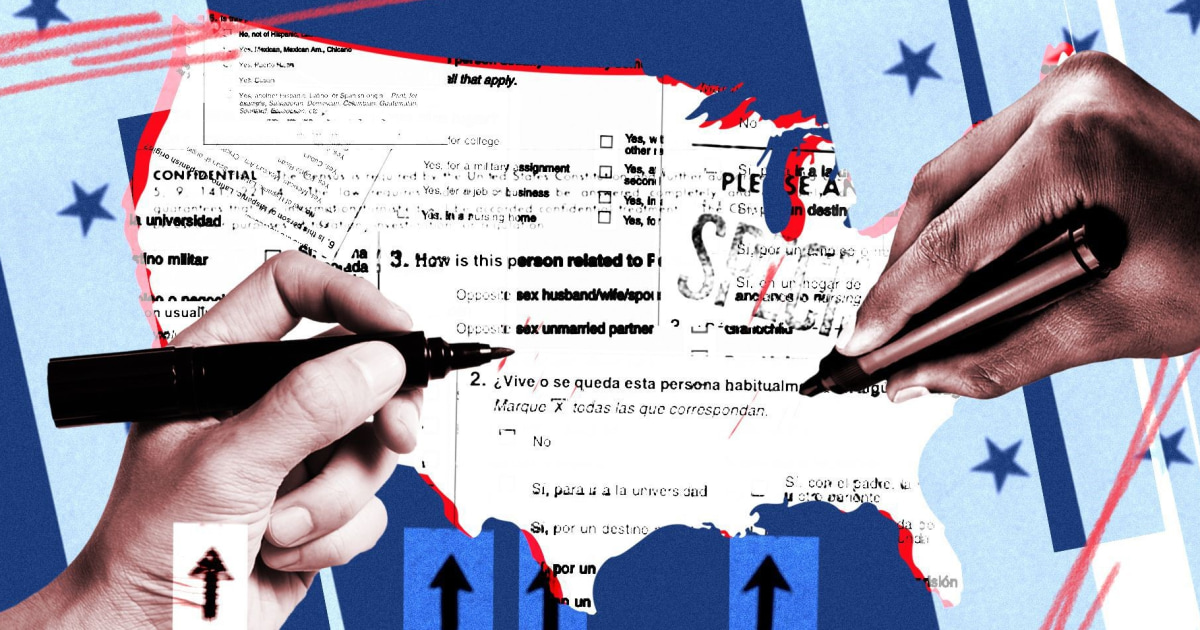
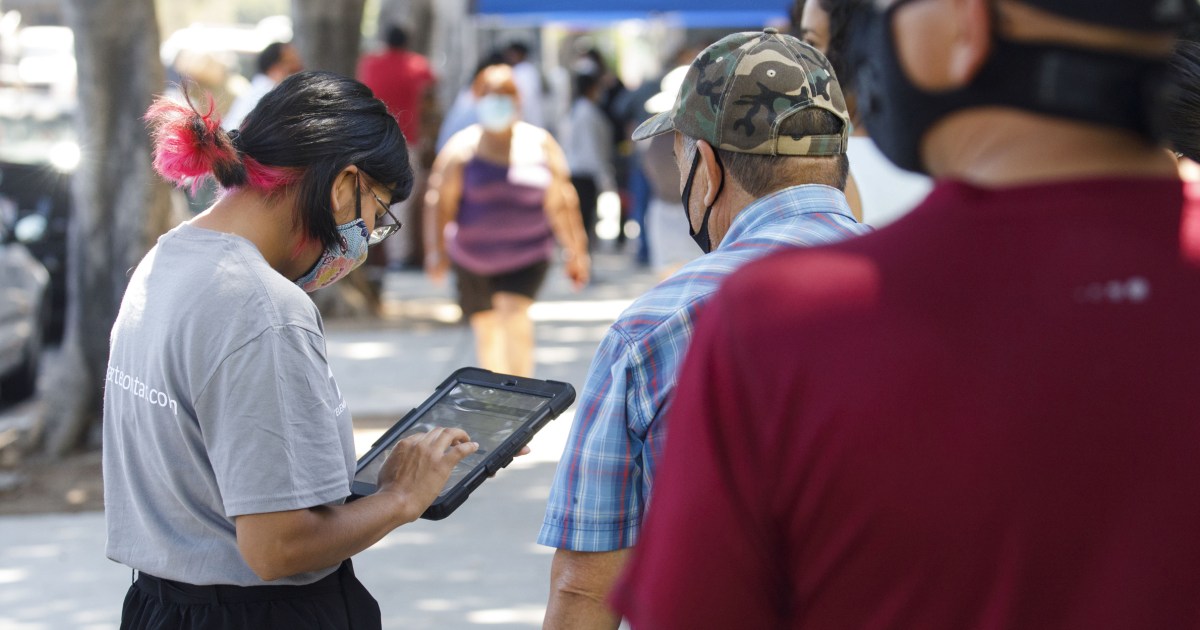

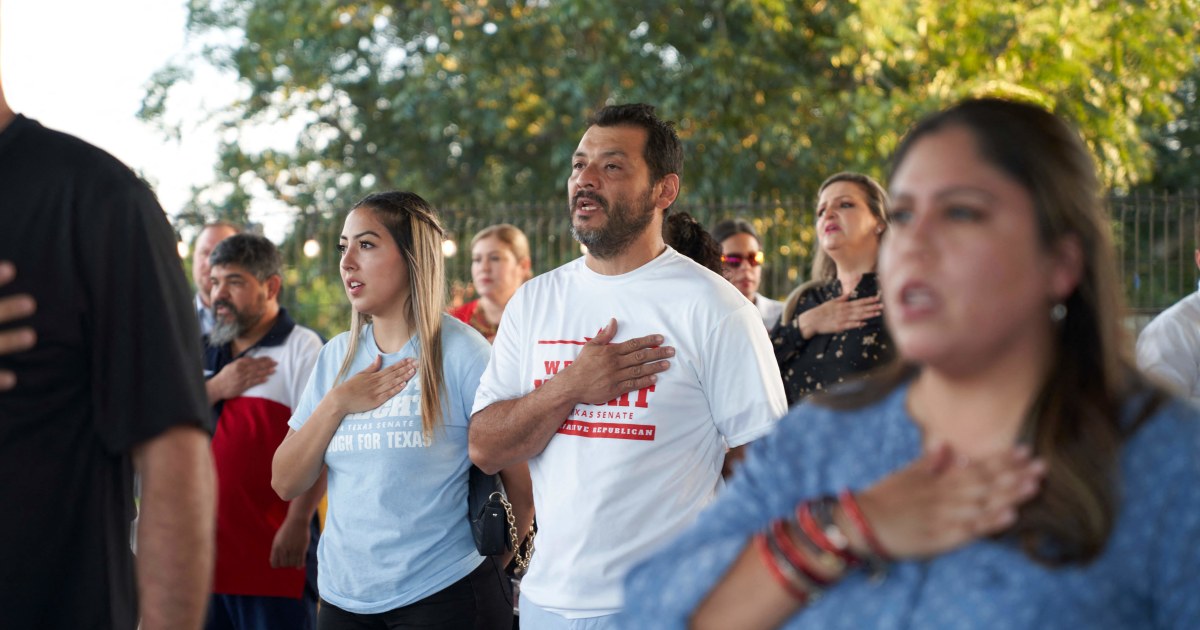
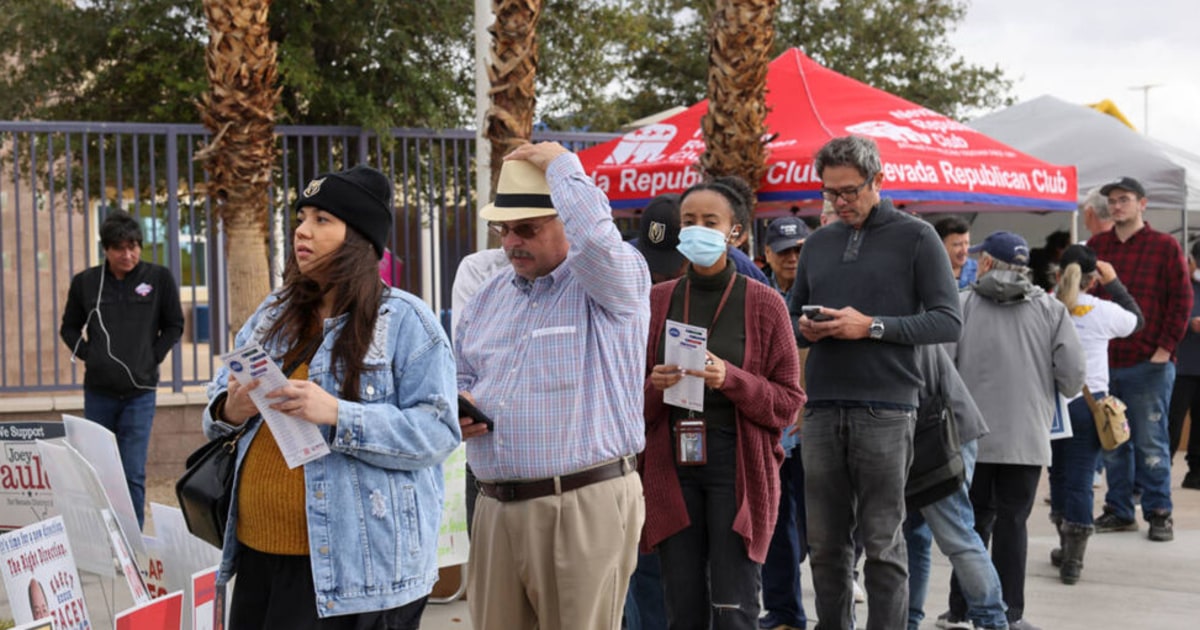
/cloudfront-eu-central-1.images.arcpublishing.com/prisa/GBWIYLSXOZDHXNUL2C66JANTE4.jpg)
